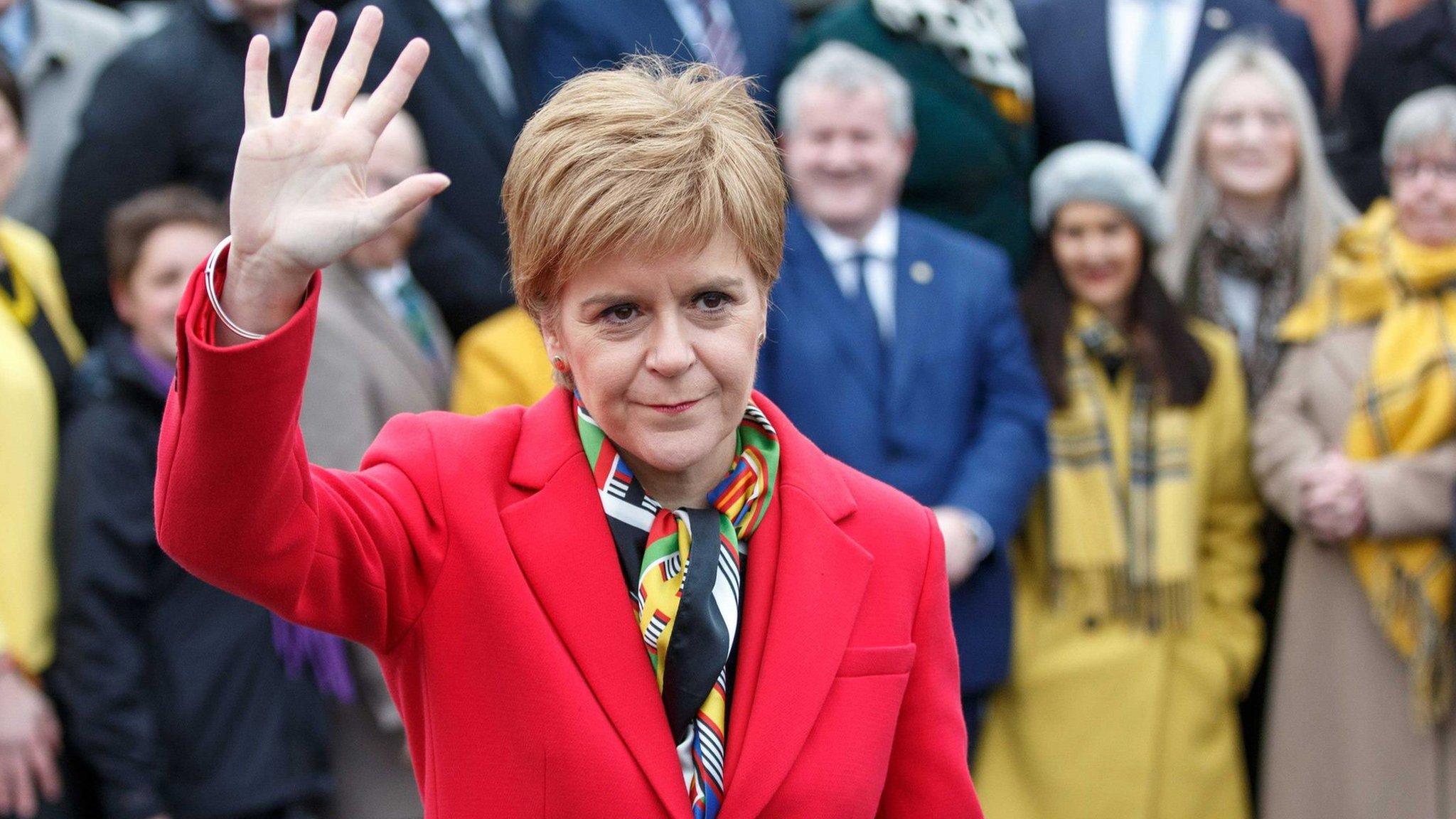What next for Nicola Sturgeon, the SNP and Scotland?
- Published
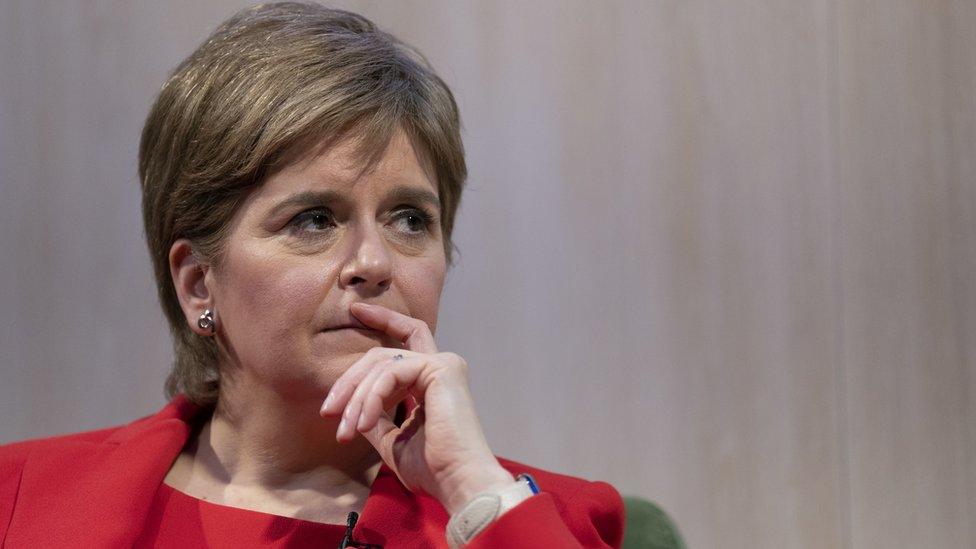
The Nicola Sturgeon era is almost at an end. This is her last full day in office as Scotland's first minister.
One of her few remaining duties is to pen a letter of resignation to the King.
On Tuesday she will be replaced as head of the Scottish government by whichever of the three candidates prevails in the SNP leadership contest.
The winner will be announced at the national rugby stadium, Murrayfield, in Edinburgh on Monday afternoon.
Ms Sturgeon's successor will either be the second female holder of the office or the first from a minority ethnic background.
The Health Secretary Humza Yousaf won the most endorsements from the SNP establishment - and was comfortable being seen as the continuity candidate.
The Finance Secretary Kate Forbes has championed change, with opinion polling suggesting she would be a more popular choice with the wider public.
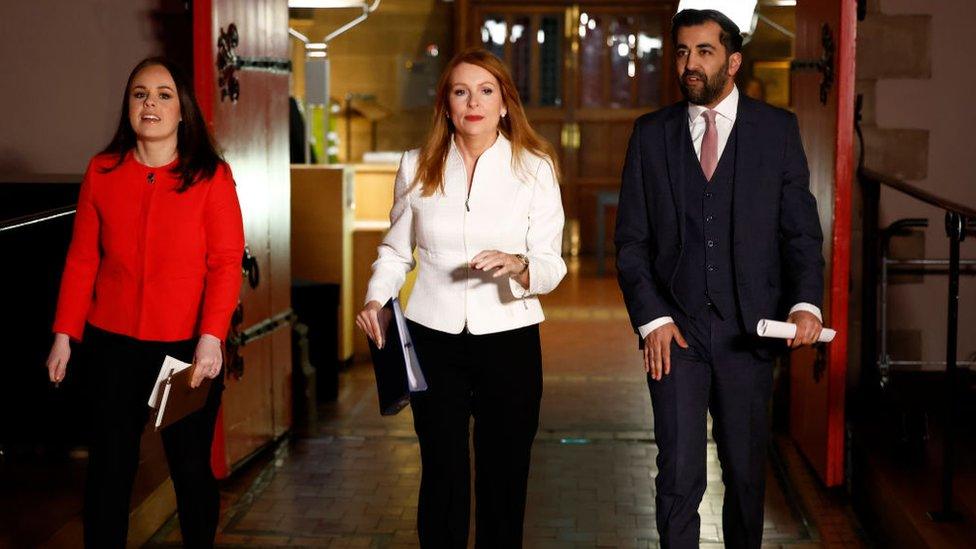
Kates Forbes, Ash Regan and Humza Yousaf are in the running to replace Nicola Sturgeon
The pair clashed in TV debates, with Forbes criticising Yousaf for his record in government, including the highest-ever waiting times in the NHS.
He questioned her commitment to equality, after she made clear that she would not have voted for same-sex marriage had she been in parliament in 2014.
The former minister Ash Regan, who resigned from the Scottish government over gender reform, has always been seen as more of a wild card in this race.
She placed independence at the centre of her campaign, and could be the king or queen-maker if her rivals run each other close.
That's because this election uses the single transferable vote system, which means voters can rank candidates in order of preference.
If no candidate gets more than half the available first preference votes, the third placed candidate drops out.
The second preferences of this candidate's supporters are then used to decide between the remaining two.
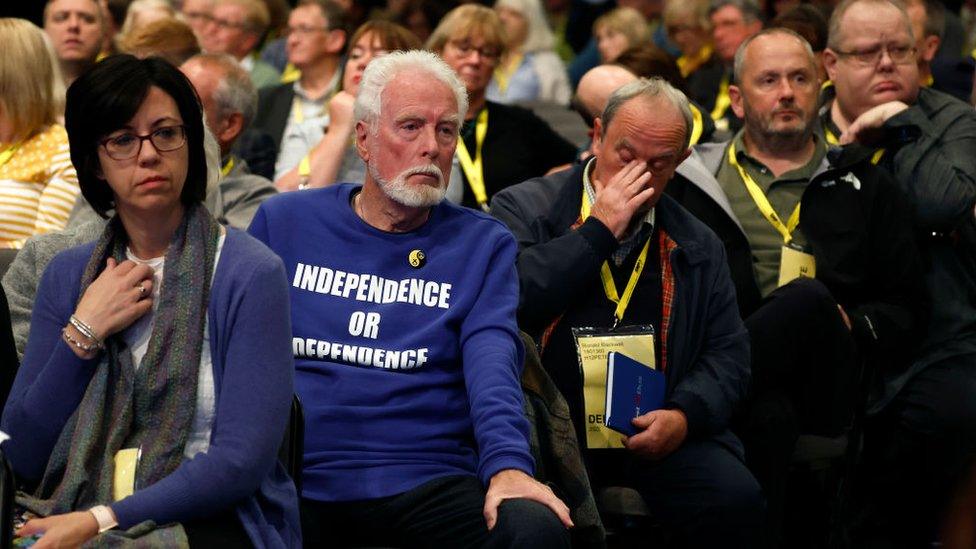
Members of the SNP - seen here at last year's party conference in Aberdeen - will choose the winner of the leadership race
The decision is in the hands of around 72,000 members of the SNP, although in reality the number that actually take part will be far smaller than that.
It is likely that fewer than one in 100 Scots are choosing the country's next first minister.
That is why Labour are already questioning the new leader's mandate to govern and calling for a Scottish Parliament election.
To be fair, the SNP have done the same on the two occasions when the Conservatives replaced the prime minister since the 2019 election without consulting the public.
The prospect of an early Holyrood election is slim because it would require the approval of a super-majority of MSPs or their failure to elect a first minister within 28 days.
The next scheduled election is in 2026. The new first minister should have until then to make their mark although their popularity will be tested at a UK general election first.
They face enormous challenges in government: to clear the backlog in the NHS, to reduce poverty and drug-related deaths and to deliver the long overdue and overbudget ferries.
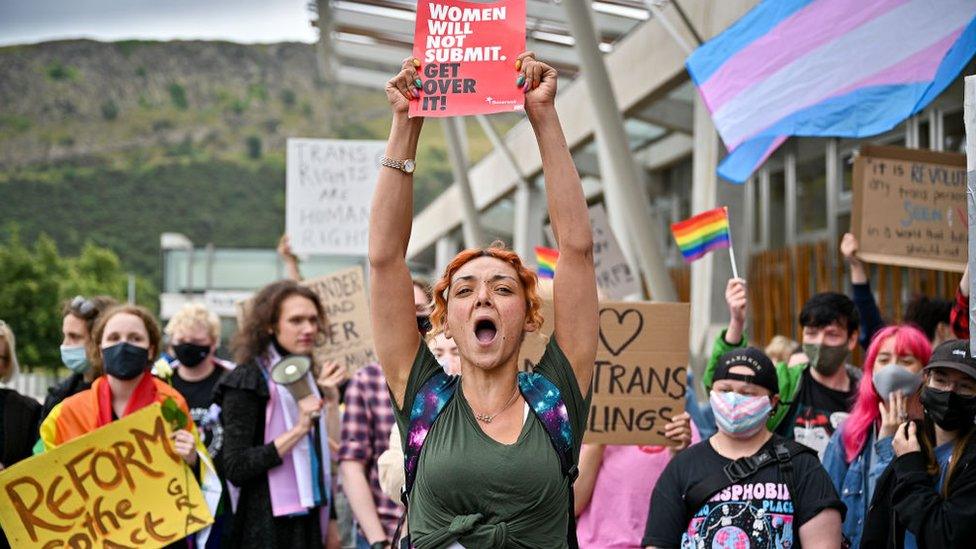
The new first minister will have to deal with the fallout from the gender recognition reform bill
They must also decide how to deal with the UK government's decision to block the bill that would make it easier to legally switch gender without medical certification.
Failure to challenge that would probably collapse the SNP's power-sharing deal with the Scottish Greens.
Kate Forbes and Ash Regan have shown no signs of distress at that prospect. Humza Yousaf would prefer to sustain the arrangement and the Holyrood voting majority that comes with it.
Then there is the SNP's ultimate goal of independence. The project has stalled under Nicola Sturgeon's leadership, with Westminster refusing to agree another referendum.
The new first minister must decide a new approach.
Prioritise independence and they'll be accused by other parties of prolonging division in the country.
Don't prioritise it and they risk inflaming the divisions that already exist in the SNP and have surfaced during the party's first leadership campaign in almost two decades.
Nicola Sturgeon says learning to drive will give her more freedom after she leaves office
These various challenges form part of Nicola Sturgeon's legacy as Scotland's longest-serving first minister and most electorally successful politician.
Her past triumphs at the polls are no guarantee of future success for an increasingly fractious SNP.
She has promised not to offer her successor unsolicited advice from the backbenches at Holyrood.
She intends to continue as an MSP until at least the next election, which should give her plenty of time to consider what she wants to do next.
The former prime minister of New Zealand, Helen Clark, who took a UN job when she stood down, has recommended a spell of "detoxification time" abroad.
In an interview for the Nicola Sturgeon podcast on BBC Sounds, the first minister suggests an international job would not fit with her commitment to remain an MSP.
Instead, she's mulling a foreign holiday, planning to write a political memoir and has started taking driving lessons to make the most of her new freedom.
As she secures some personal independence, the cause of Scottish statehood and the burdens of running the devolved government are passing to a new generation.

Who are the SNP leadership candidates?


- Published26 March 2023
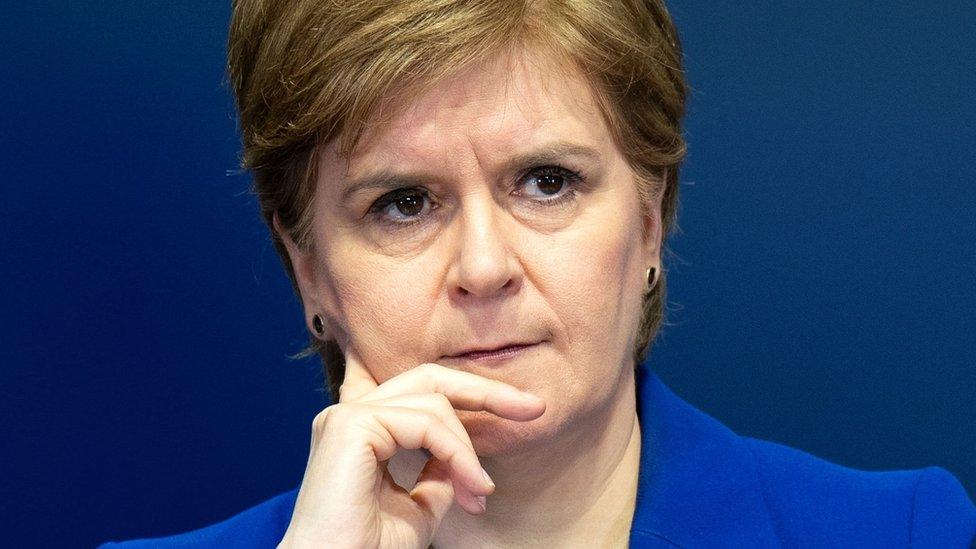
- Published24 March 2023
